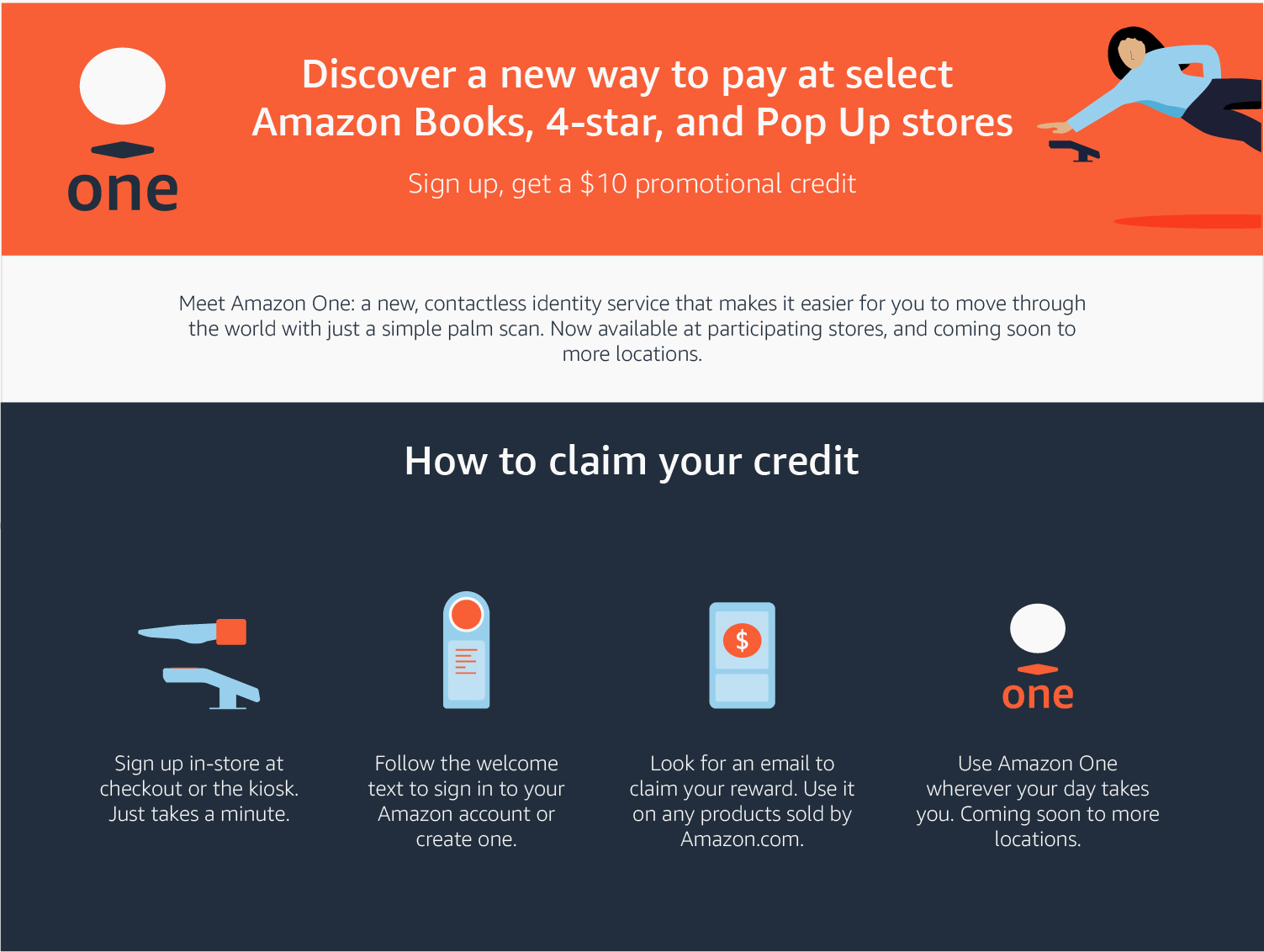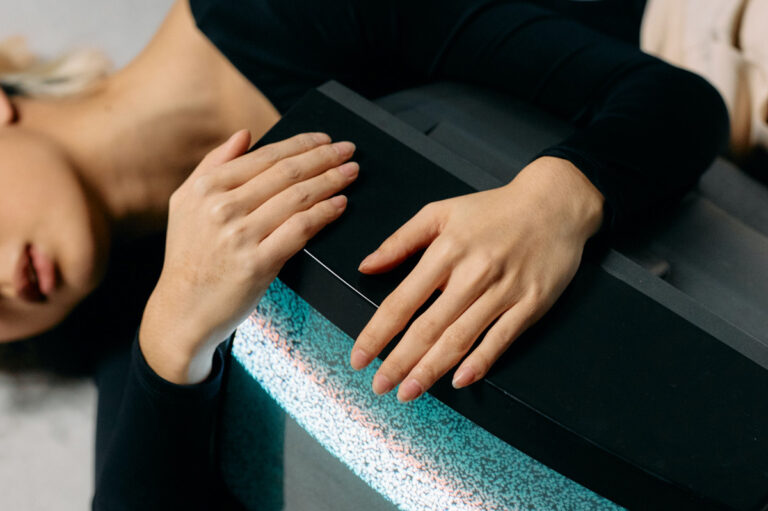Amazon will now pay you $10 in credit for a scan of your palm print
If you haven’t given Amazon the keys to your front door, don’t fret. The tech giant is now offering $10 in credit to those who enroll their biometric data into the company’s palm print recognition system, Amazon One.
It all started in September 2020, when Amazon introduced biometric palm print scanners at its cashier-less stores across the US, including Amazon Go and Amazon Books. Dubbed Amazon One, the scanners presented itself as a payment verification system where customers could merely wave their palm prints and zip their way through the checkout booth.
According to the tech giant, its palm scanning hardware “captures the minute characteristics of your palm—both surface-area details like lines and ridges as well as subcutaneous features such as vein patterns—to create your palm signature,” which is then stored in the cloud and used to confirm your identity when you’re in one of its stores. Since February 2021, Amazon has expanded this technology across 50 locations in the US, including some Whole Food stores. As of April, Amazon reported “thousands” of customers having enrolled in the service.
In its latest promotional push, the tech giant is now offering $10 in credit to entice customers into using the technology. All you have to do to earn the credit is enroll your palm print at one of the stores and link it to your Amazon account. The credits can then be claimed via email and used on any product sold on the Amazon marketplace.

What could possibly go wrong?
Although Amazon One is marketed as a “fast, convenient, contactless way for people to use their palm to enter, identify and pay,” critics state that the technology is unnecessary, with similar benefits provided by contactless payment cards. Sure, the idea of contactless anything is appealing over the pandemic but given Amazon’s controversial brush with facial recognition technology—which it historically sold to the police and law enforcements by the way—privacy concerns and identity theft are on the cards.
By linking your palm print to Amazon, you are essentially granting the company the right to use the data it collects—like your shopping history—to target advertisements, offers and recommendations to you over time. Amazon also admitted that it will store your palm data indefinitely, unless you choose to delete the data yourself. However, this factor comes with certain clauses. Users can only delete their data if there are no outstanding transactions left or if they don’t use the feature for a stretch of two years.
“The advantage [of your palm print] is that it’s on you all the time, this isn’t something you can lose, but that’s also a disadvantage because you can never change it,” said Reuben Binns, a security researcher and University of Oxford academic, to The Verge. “You can never change your palm like you change your password or other identification tokens.”
The move has also been criticised as “the dystopian future of science fiction.” “It’s horrifying that Amazon is asking people to sell their bodies, but it’s even worse that people are doing it for such a low price,” said Albert Fox Cahn, the executive director of the New York-based Surveillance Technology Oversight Project, to TechCrunch.
“Biometric data is one of the only ways that companies and governments can track us permanently. The more we normalize these tactics, the harder they will be to escape. If we don’t [draw a] line in the sand here, I am very fearful of what our future will look like.”
While much of Amazon’s contactless technology is still at its infancy, the very fact that the tech giant is using cash incentives to encourage its own service—in turn churning sales on its own platform—proves how far companies would go to ‘enrich’ consumer experiences irrespective of their long-term risks to customers. But then again, this is not a big leap for Amazon delivery drivers, who have already been forced to provide their biometric data as “a condition of delivering Amazon packages.”






